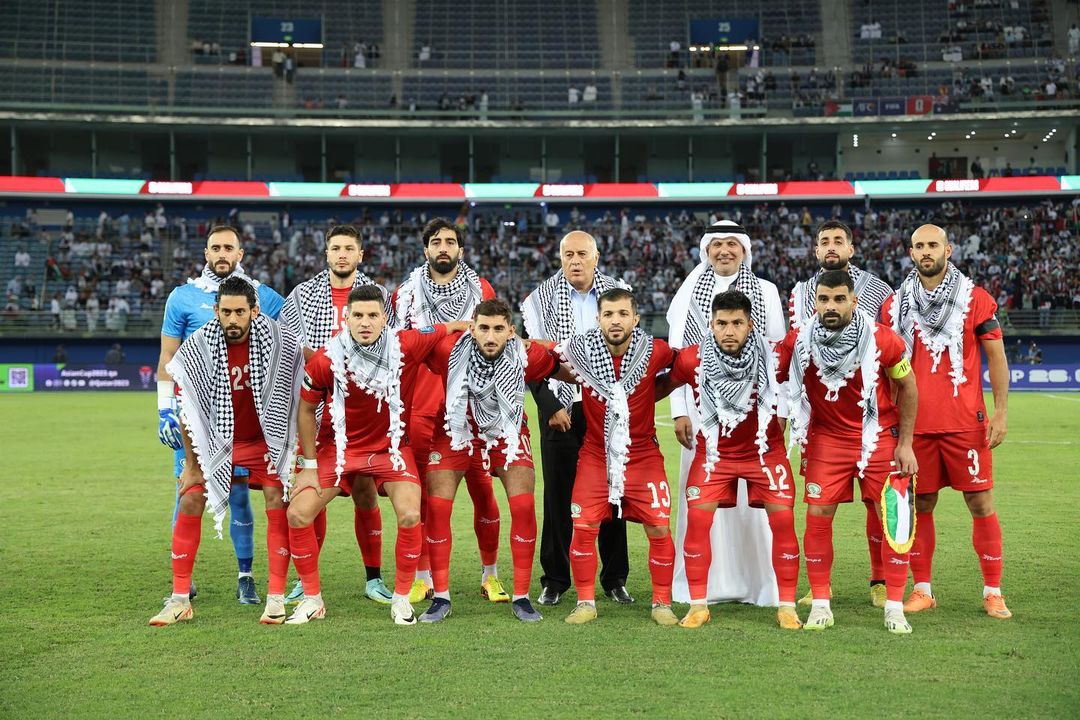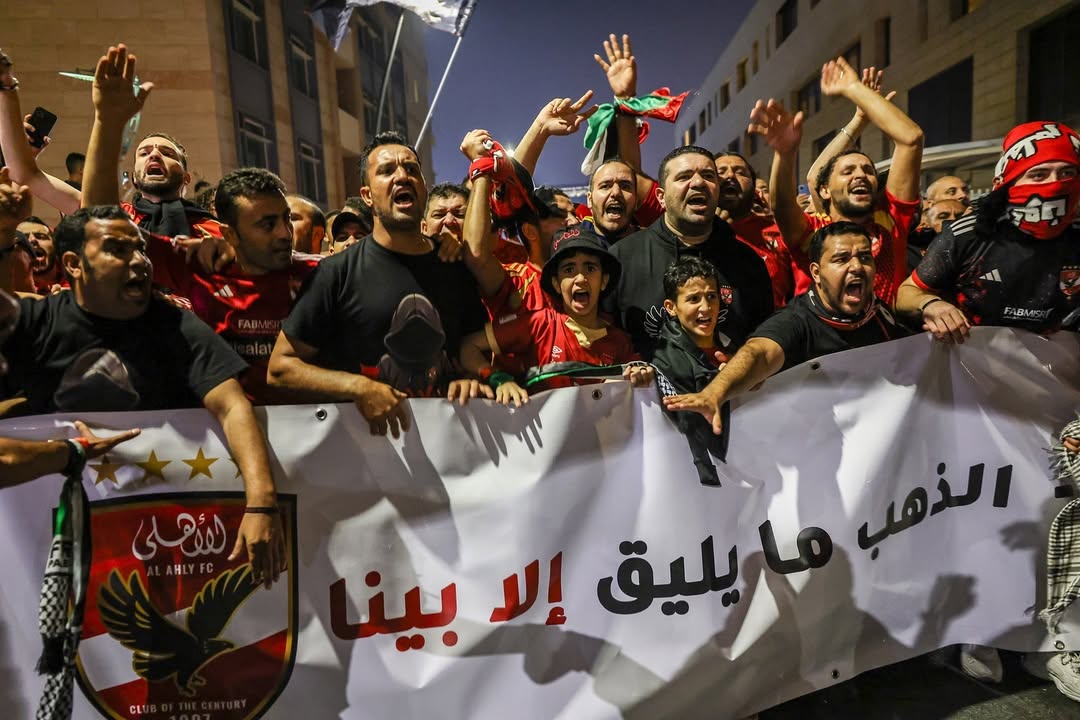Football bodies suspended Russia from competing in all international competitions after its invasion of Ukraine, but fell short of sanctioning Israel for its ongoing war crimes in the Gaza Strip.
Despite positioning itself as an international self-regulatory governing body of association football, FIFA has been seen as an institution with selective morality as it continues to shield Israeli football from complaint.
As global pressure mounts on FIFA and the Union of European Football Associations (UEFA) to impose consequences on Israel and suspend its team from international competitions, the governing bodies have instead delayed votes for suspension, and allowed Israeli footballers to play behind closed doors without fan attendance.
In the aftermath of the Israeli government’s war on the Gaza Strip on October 7, Israel has been barred from hosting any football matches by UEFA for security reasons .
Instead, the Israeli football team has played fixtures at neutral venues in Hungary, while Palestinian footballers in Gaza remain trapped and exposed to Israel’s devastating bombardment.
Late last year, before Palestine’s World Cup qualifying games against Lebanon and Australia, Palestine’s head coach Makram Daboub expressed how challenging it was to maintain an entire squad for their 2026 Men’s FIFA World Cup qualifying campaign.
The Tunisian football coach, who aims to pilot the team to its first World Cup tournament, revealed to The Associated Press that several team members are forcibly absent from the games, as Ibrahim Abuimeir, Khaled Al-Nabris, and Ahmed Al-Kayed were trapped in Gaza.
“So far, they are fine,” Daboub told AP.
“Many of their relatives have died, however, as a result of the bombing. With the death and destruction in Gaza, the players are in a difficult psychological state,” Daboub added.
Analysts have questioned the conspicuous silence of FIFA Israel’s sustained attacks on Palestinians, and the impact Israel’s war has on the performance of Palestinian players.
Double standards
Last Friday, spectators were banned from attending the UEFA Women’s Euro 2025 qualifiers between Scotland and Israel over “the potential for planned disruptions to the match” by protestors.
However, a protestor still managed to enter the game and chained himself to the goalposts at Glasgow’s Hampden Park Stadium, delaying the game.
Wearing a shirt emblazoned with the words “Red Card for Israel”, the protester was ultimately led away from the pitch by police as the game kicked off to the sounds of protesters outside the stadium opposing the match.
Unlike the Russian invasion of Ukraine, where FIFA adopted both a legal framework and charitable approach to those affected by the war, the football governing body has yet to state any support towards Palestinians publicly.
Upon appeal to the International Olympic Committee (IOC), Russian officials last year reacted angrily to the IOC’s stance toward Israel, noting that the Russian Olympic Committee was suspended for actions taken in occupied regions of eastern Ukraine.
“This is, of course, outrageous,” said Russian Foreign Minister Sergey Lavrov, in an interview posted on Telegram. “Once again we see an example of the bias and ineptitude of the International Olympic Committee, which time and again proves its political bent.”
In its own Legal Handbook that was updated during the Russia-Ukraine war, FIFA states: “Discrimination of any kind against a country, private person or group of people on account of race, skin colour, ethnic, national or social origin, gender, disability, language, religion, political opinion or any other opinion, wealth, birth or any other status, sexual orientation or any other reason is strictly prohibited and punishable by suspension or expulsion.”
However, FIFA has often ignored several trials of suppression by Israeli officials of Palestinian footballers that surfaced long before October 2023.
In 2014, Israeli forces raided the headquarters of the Palestinian Football Association in the Palestian town of al-Ram, near Jerusalem, interrogating and harassing employees in the building.
Despite widespread condemnation, no actions were taken against Israeli authorities by any football governing body.
Since that raid, the PFA has spoken at a FIFA Congress at least five times and has yet to see any serious action taken against Israel.
Last month, FIFA postponed its decision on whether to suspend Israel from global football until July, as President Gianni Infantino announced the need to seek “external legal advice” first.
The announcement followed a plea from Palestinian Football Association (PFA) President Jibril Rajoub during FIFA’s annual congress in Bangkok.
In his speech, Rajoub called on FIFA to “stand on the right side of history,” presenting statistics on the impact of Israel’s military operations in Gaza.
He referenced previous FIFA suspensions of Russia, Apartheid-era South Africa, and Yugoslavia.
“Does FIFA consider some wars to be more important than others and some victims to be more significant?” Rajoub asked rhetorically.
Dortmund’s new controversial sponsor
The double standards in Western sports is exemplified by the announcement of the new sponsor for German football team Borussia Dortmund, who lost the Champions League final against Real Madrid over the weekend.
Dortmund has signed a three-year partnership with Germany’s largest arms manufacturer Rheinmetall.
Despite Israel killing more than 36,000 Palestinians since October 7, Rheinmetall continues to supply Israel with weapons.
This prompted Dortmund’s supporters to unveil a banner at Wembley Stadium during Saturday’s Champions League final, protesting their recent sponsorship deal.
“Rheinmetall: using football to create a cleaner image? Protecting BVB from sportswashing is our mission,” was penned in German on banners.
Football icon Gary Lineker expressed his support for Real Madrid after the story of Dortmund’s new sponsorship was reported.
“First time I’ll be cheering for Real Madrid in a Champions League final,” Lineker wrote on X, the site formally known as Twitter.
In the immediate times after Israel’s bombardment of Gaza, global arms stocks climbed across the board, with Rheinmetall shares rising 4.83 percent, according to reports by Anadolu Agency.
While Rheinmetall’s logo will not appear on the players’ jerseys, it will be displayed on the team’s licensed products.
Dortmund said the deal includes “wide-reaching advertising space, marketing rights and event and hospitality arrangements in the stadium and on the club grounds”.
“Security and defence are fundamental cornerstones of our democracy. That is why we believe it is the right decision to take a very close look at how we protect these cornerstones,” Dortmund chairman Hans-Joachim Watzke said in a statement.
“Especially today, when we see every day how freedom must be defended in Europe. We should deal with this new normality,” the statement added.
Despite being sued over weapons sold to Israel, Germany has been one of Israel’s most prominent backers of arms.
The lawsuit, filed by the European Center for Constitutional and Human Rights in April, asks German courts to suspend export licenses issued by the German government for arms shipments to Israel as part of provisional measures.
The German Peace Society, an organisation consisting of political pacifists, condemned the Dortmund’s new sponsor.
“I am very shocked – I would never have expected that BVB would even consider entering into a partnership with an arms company,” said Michael Schulze von Glasser, managing director of the German Peace Society.







